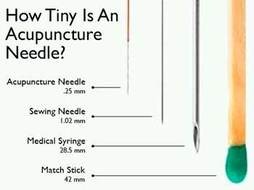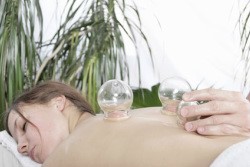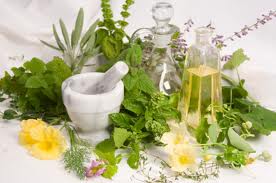What is acupuncture?
Acupuncture is a form of medicine which dates back thousands of years, but is still evolving till this very day. The capacity for your body/mind heal itself is greater than anyone has ever told you. Tiny acupuncture needles, placed gently in very precise spots on your body, simply signal the body to heal itself to its own utmost ability. A needle on your wrist may signal the body to heal a stiff shoulder. A needle in your leg may signal your body to move chronic constipation. Usually a combination of several needles is used. You can read more from the National Institute of Health.

What needles do you use? Do they hurt?
Needles used in acupuncture are tiny. I also use a very light and shallow Japanese needling technique. Often, the patient may feel ‘De Qi’ (duh-chee), a distending sensation, which often means that the body has responded affirmatively to the needle, and the healing process is occurring. In trigger point therapy (sometimes known as ‘dry needling’, the most elementary form of acupuncture), I may use a longer needle to strategically stimulate trigger points or motor points in a muscle. In some cases, I may also apply gentle electrical (9-volt battery) stimulation to a pair of needles. Of course, needles come in sterile packaging, used once only, and then destroyed.
What about medical herbs?
Chinese herbal medicine is the oldest recorded system of herbology in the world. Some medical herbs are familiar to us, such as ginger and licorice. Other herbs are only found and harvested in very specific regions and climates in Asia. Minerals are also used in Chinese herbal medicine. Chinese herbal formulas are designed to gently bring the body/mind back to its own capacity of self-healing. Our training in the use of medical herbs is comprehensive; for example, we take into consideration the western pharmaceuticals the patient may be taking and adjust the herbs in our formulas accordingly, or choose not to use them at all.
Who is qualified to practice acupuncture and oriental medicine?
Although licensure laws vary from state to state, only Licensed Acupuncturists (L.Ac.) are qualified to make an accurate diagnosis and safely insert needles into a patient, and prescribe Chinese herbs. To become licensed, a practitioner must complete a 3000+ hour Masters program at an accredited college of acupuncture/oriental medicine, such as Dragon Rises College of Oriental Medicine , earn accreditation from the National Certification Commission for Acupuncture and Oriental Medicine after passing four national board exams, as well as earn a certification in Clean Needle Technique from the Council of Colleges of Acupuncture and Oriental Medicine. In short, the practitioner should have a Masters in Oriental Medicine, NCCAOM accreditation, and state licensure with the title ‘L.Ac.’
It is neither safe nor wise to accept acupuncture treatment from anyone without these qualifications, and you do so at your own risk.
Read more about who is and who is not qualified to perform acupuncture and dry needling.
What can you do without needles or herbs?
Plenty. I have extensive training in many forms of oriental physical therapy, such as tui-na, which aligns and adjusts joints and the spine in a gentle, harmless, holistic way. No force is used, and it is virtually risk-free. Gua Sha with is also known as Scraping, which breaks up stagnate muscle fascia I also do medical cupping, as shown in the picture. This technique has been used for centuries all over the world, including China, Germany, Greece, Russia, and South America.
Is oriental medicine superior to western medicine?
No. There is no complete or perfect model of healing. If there were, there would be no sick people in the world. There is a time and place for acupuncture and Chinese herbal medicine, and a time and place for western medical intervention and pharmaceutical drugs. I have benefited from and have a great respect for the miracles of modern medicine, surgery, and technology, and I will be the first to refer you to a specialist outside my area of expertise, should it be to your benefit. Your well-being is my greatest concern, and there is no place in civilized society for healthcare chauvinism.



